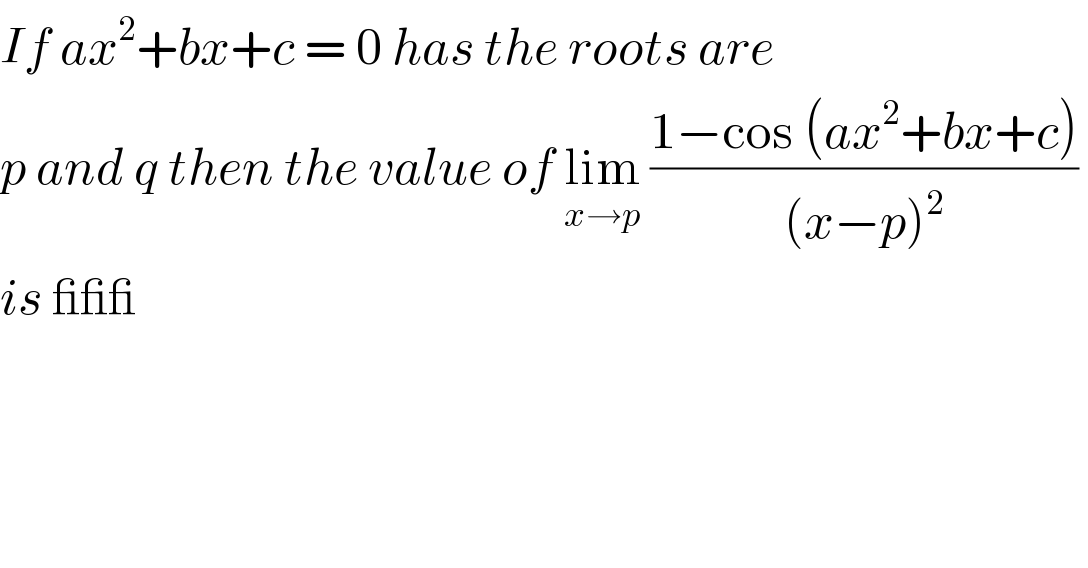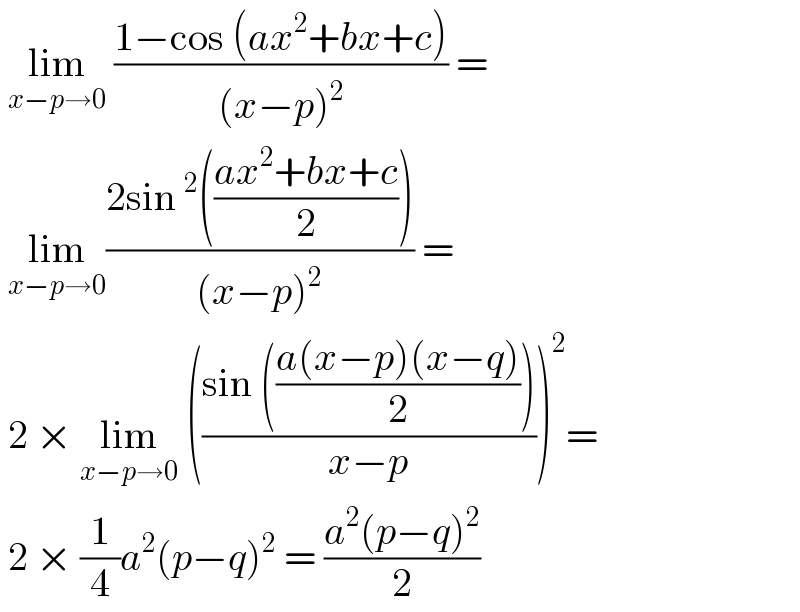
Question and Answers Forum
Question Number 122834 by liberty last updated on 20/Nov/20

Commented by bemath last updated on 20/Nov/20

Answered by $@y@m last updated on 20/Nov/20

| ||
Question and Answers Forum | ||
Question Number 122834 by liberty last updated on 20/Nov/20 | ||
 | ||
Commented by bemath last updated on 20/Nov/20 | ||
 | ||
Answered by $@y@m last updated on 20/Nov/20 | ||
 | ||
| ||